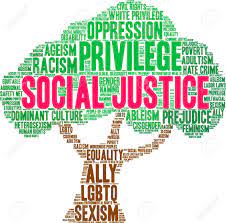
Background
When the Indian nation enunciates its identity formation from an egalitarian ethos and equity narrative then the theme of national unity and a just cause embroiled in equity and national integration come to the forefront. The nation’s hallowed constitution works up enough positivity and enthusiasm for the founding fathers and the political leadership to adhere to. India has been hobbled by the caste injustices of the past age and now the attendant malady of caste Politics which further serves as a fissiparous entity endangering the unity, integrity and the functional aplomb of the larger nation and its receptacle population. Bharat needs to awake anew as the upwardly mobile perch of the left behind minorities and underprivileged sections of the society need to be taken into account for and such has been the working ethos of the Narendra Modi denomination since May, 2014.
India has been faced with the belittling and hobbling factor of caste which is an innate obstacle in the pathway of attaining an egalitarian ethos along with a just administrative system. John Rawls in his seminal work, The Idea of Justice, has earmarked the functionality of identifying the weakest chain in the link of recipient citizens and attempted to strengthen them which has been a key credo of the Narendra Modi denomination.
A heady Governmental portal informs us that, “Welfare Schemes for Vulnerable Sections of the population by the Centre and States and the Performance of these Schemes; Mechanisms, Laws, Institutions and Bodies constituted for the Protection and Betterment of these Vulnerable Sections have been undertaken. Other issuers such as The one’s relating to Development and Management of Social Sector/Services relating to Health, Education, Human Resources and themes relating to Poverty and Hunger have been given a prominence by the Governmental administration along with the stress on Insuring the life, livelihood and health of the minorities in the larger nation.”
Several statutes and legal provisions have been initiated in the larger context of the regular minorities and even other receptacle populations such as those of transgender and disabled sections of the Indian population. For the uplift of the Scheduled castes’s, the Protection of Civil rights act, the scheduled castes and scheduled tribes Prevention of Atrocities act, national Commission for scheduled castes along with the scdelued castes sub plans are some of the tenets and key pegs upon which the mainstreaming and benefiting function of the New Delhi denomination are premised upon. Its here that the axiom of Antyodaya comes into active play.
The idiom of women empowerment would be seeking competition if the ameliorative steps premised upon the notion of Feminist narrative are relegated to the backburner. Workplaces serve the belly fire in the multitudes of the household and the discrimination and advances suffered by women in the designated workplaces survive as the fly in the ointments which drives women workers to humiliation and discomfort. The details and the functionality of the Domestic Violence act is also placed as a kind of an ameliorative measure into bettering the state of women in India. These themes should be made aware to the aspiring civil servants if a holistic sense of justice and security has to be engendered in the general attitude of the Indian society.
Poverty alleviation exists and subsists as a key barometer in the larger Governmental exercise of mainstreaming and achieving goal oriented results in the sphere of welfare. Dire poverty is a cause of farmer suicides in the larger rural hinterland of the nation which needs to be studies, researched and investigated upon so that a positive and receptive attitudes and apt aptitudes are inculcated in the thought frame of the future mandarins of the nation.
Social Justice